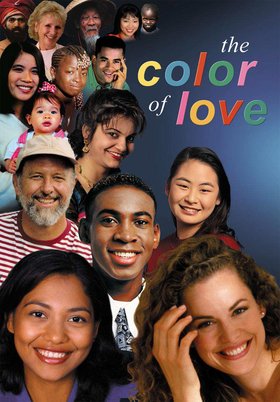
HARMONY IN A WORLD as wracked by tension, strife, prejudice, and violence as the one we live in today? Impossible! you might think.
WHAT IF A DECREE WAS MADE that all people of every country, race, ethnicity, and creed were to respect everyone else, regardless of their differences? Unfortunately, even if someone had the authority to issue such a mandate, it would never work. Simply put, righteousness cannot be legislated.
SO HOW CAN PREJUDICE, fear and distrust be overcome when these things have been ingrained in humankind for centuries? The answer can be summed up in one simple word: love!
The Bible says, "Hatred stirs up strife, but love covers all sins" (Proverbs 10:12). If you hate somebody, your interactions with them are likely to breed disagreement and conflict. But if you love them with God’s love, even if they have wronged you, it's possible to forgive them.
This may sound like a noble aspiration, and realistically, how many people are capable of just releasing resentment, hatred, fear or other deep-seated negative attitudes they may harbor toward individuals or entire groups of people?
THE GOOD NEWS IS that despite our limited human resources, it is still possible for us to love and respect others, regardless of their or our past or background. The key to such love comes from the ultimate source of love, God Himself. The Bible tells us that "God is love" (1 John 4:8). He is the all-knowing and all-powerful Creator of the universe who brought us all into being.
To show us what He is like, He came down to our level by sending His own Son to earth in the form of a man, Jesus Christ. Jesus' entire ministry was one of love and truth. He experienced human suffering and had great compassion on the people as He ministered to their spiritual and physical needs. He became one of us.
He taught that all the laws of God depended on one great commandment: to love. Jesus said, "You shall love the Lord your God with all your heart, with all your soul, and with all your mind," and "you shall love your neighbor as yourself." (See Matthew 22:37-40.)
An expert in religion overheard Jesus teaching this, and publicly challenged Him by asking, "Who then is my neighbor?" Jesus responded with the story of the Good Samaritan, in which He clearly showed that our neighbor is anyone who needs our help, regardless of their race, creed, ethnicity, or nationality (Luke 10:25-37). We can learn love our neighbors and do our part to bring peace to the world by asking God to give us His love for others.
The Bible says of Jesus, "He Himself is our peace, who has made both [different races] one, and has broken down the middle wall of separation" (Ephesians 2:14). The love of God is what brings genuine peace and mutual respect between us.
"Man looks on the outward appearance, but the Lord looks on the heart" (1 Samuel 16:7). And when we align our perspectives with God's vision for humanity, we too can look past the differences in other people to see their worth and dignity as unique individuals created in the image of God.
What a wonderful world it could be if we were all color-blind and race-unconscious, where the only thing we saw when we looked on a person of another ethnic background was God's love for them—the color of love! It's possible, in Jesus, where "there is neither Jew nor Gentile, there is neither slave or free, there is neither male nor female; for you all are one in Christ Jesus" (Galatians 3:28).
THE BIBLE TELLS US THAT "God so loved the world [you and me], that He gave His only Son [Jesus], that whoever believes in Him should not perish but have everlasting life" (John 3:16). Jesus will freely forgive you all your sins and grant you eternal life if you will invite Him into your heart. Receive Him now by sincerely praying a prayer like the following:
Dear Jesus, I want to know You. Thank You for giving Your life for me. Please forgive me for all my sins. I ask You to come into my heart and life and give me Your free gift of eternal life. Fill me with your love and help me to be more tolerant of others, and to see them as who they are: Your unique creation worthy of dignity and respect. Amen.